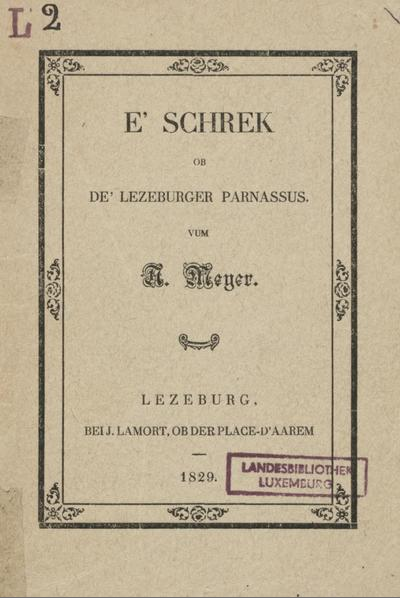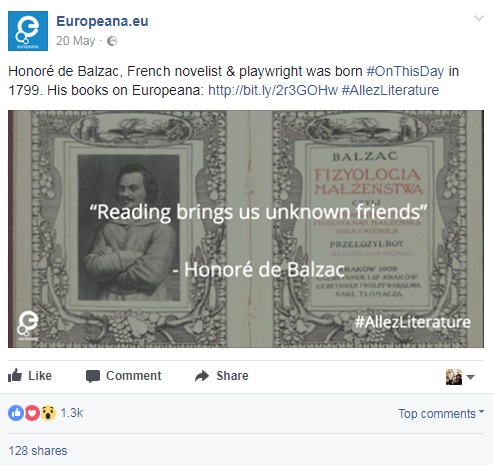Wrapping up #AllezLiterature: successes and lessons from our Europe-wide campaign dedicated to the written word

From February to July, we have been highlighting textual resources on Europeana, with a special focus on love letters (on the occasion on Valentine’s Day), poems (World Poetry Day), and books that have marked literature across Europe (World Book Day). We would like to thank all our partners’ institutions for their contribution, and share this story of this latest collaboration. Here are a few highlights of the result of our work.
Collaborating with institutions across Europe
To celebrate the written word in all its forms and languages, we reached out to libraries and archives across Europe and invited them to submit texts that we could share online in a literary tour of Europe. 19 institutions from 17 countries got involved, selecting content from their own collections, and providing either images of poems (including D'Noiecht, from E' Schrek ob de' Lezeburger Parnassus by Antoine Meyer), or books made available to download as PDFs (such as The Lady of the Lake by Walter Scott). From Homer to Gustave Flaubert and Kafka, 105 works provided were usable in the campaign, with a particularly strong involvement from the Eastern European Libraries.
Engaging with users online
Mostly led on social media, the campaign invited users to interact with the content, taking part in literary quizzes or sharing opening lines from famous books using the #AllezLiterature hashtag. These activities received an encouraging response from users: there were 354 tweets from 202 contributors which reached over 600,000 people. Among the most popular ones, a tweet linking to Ulysses by James Joyce was retweeted 47 times, and liked 28 times, reaching 45,047 people. On Facebook, the posts reached 596,413 people, with 23,263 users engaging with the content. The #OnThisDay Facebook post remembering the birth of Balzac received 1.3K likes, and was shared more than 120 times!
Beside social media activities, two Transcribathon competitions were also organised online to encourage people to digitally transcribe handwritten documents from World War One - specifically love letters (on the occasion of Valentine’s Day) and poems (for World Poetry Day). Both challenges were a success, with over 700 transcribers taking part, and more than 4,000 documents completed.
Learning from the challenges
While we are sharing the success of #AllezLiterature, we are also learning our lessons for future campaigns. The main issue we encountered, because of the short time span of the campaign, was the uneven level of quality of the content submitted. We were hoping to get resources that could be used easily, but the data quality of the material wasn’t always up to the standard needed for an online campaign, and sometimes had to be reworked. Practically speaking, this means that 99 works selected by 8 institutions (about half of the content submitted) were unfortunately not usable.
The time frame was also problematic for content that wasn’t already in Europeana - such as Erste Gedichte by Rainer Maria Rilke submitted by the German National Library. In similar cases, several libraries had to update the material to meet the requirements. Going forward with short leads in time for future campaigns, we should focus on works that are already part of the database, or set a clear deadline by when they need to be submitted.
Another difficulty was that content selected by the libraries did not always include the direct link to the digitized object (edm:isShownBy) for users to download it, as some institutions had technical limitations in their databases. This has been the case, for instance, for the first book of literature to be printed in Cyprus. And in terms of copyright, selected works didn’t necessarily have an open licence to be reused, for example this manuscript by the Petőfi Literary Museum in Hungary. Despite the downside of these challenges, the positive is that many institutions opened up the material for the campaign, and as a consequence, we now have more open material in Europeana.
Were you part of the #AllezLiterature campaign? Please share your feedback on the campaign with us!
by Camille Tenneson



